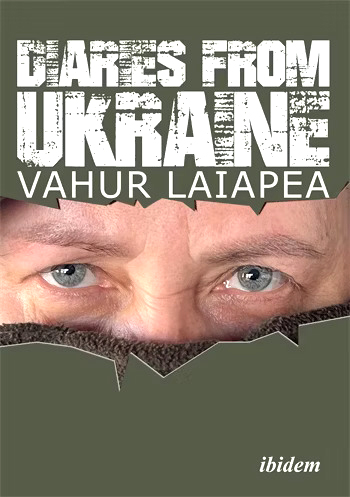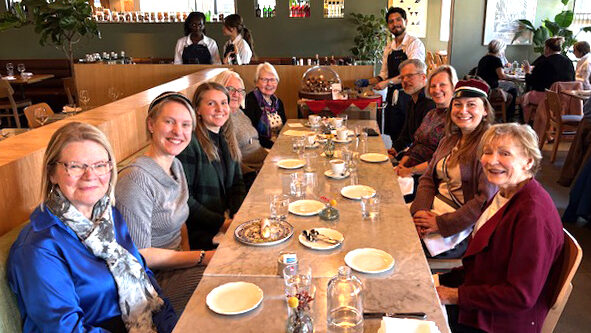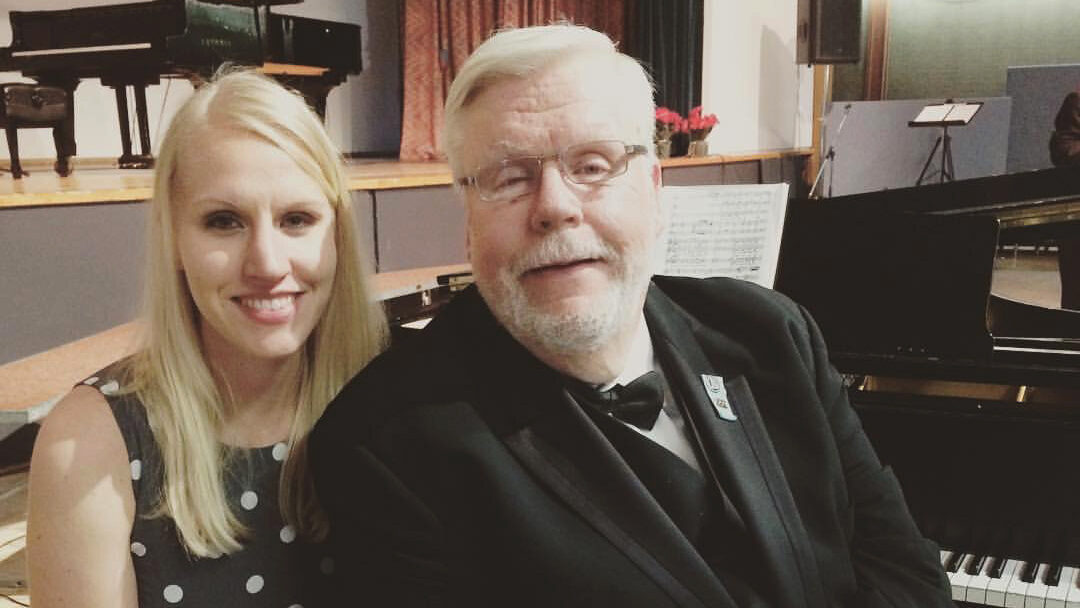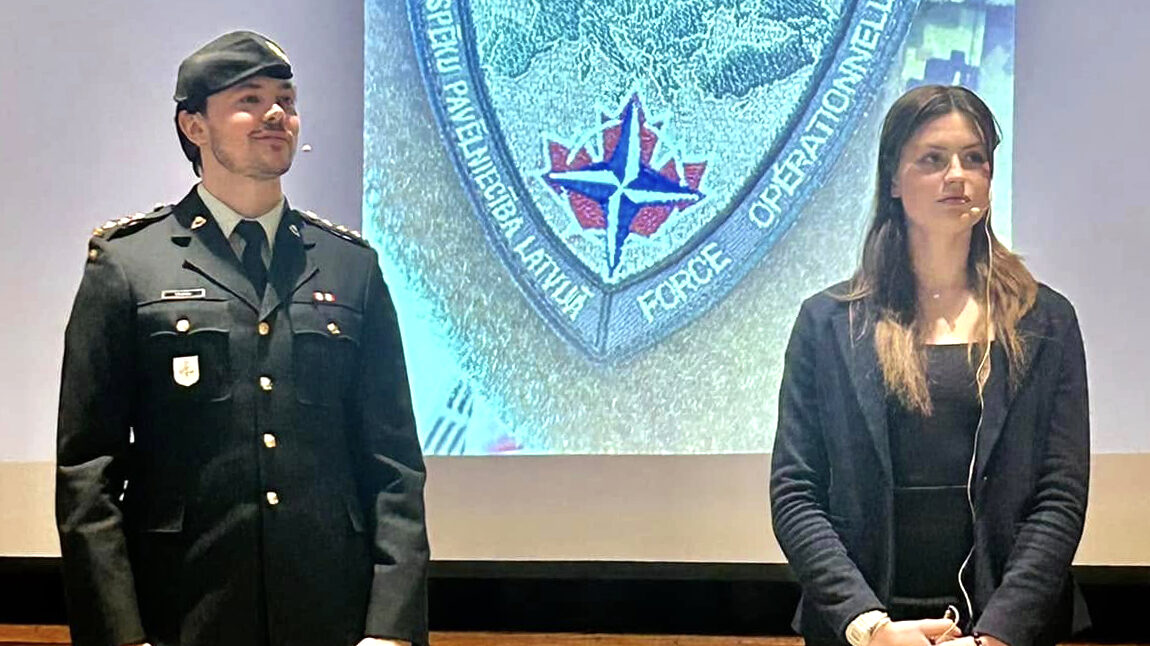Diaries from Ukraine is a new book, published in February 2025 by ibidem Press. Written by Vahur Laiapea., it has been translated by Ott Palumäe and Tiiu Palumäe. The 152-page book is available on Amazon.

Cruel Jokes of War
Pavel shows me the driver’s license of Noel, a U.S. citizen. Noel was born in 1996. He lived on Lincoln Avenue in New York. The license says he’s a brown-eyed man. Five feet six inches tall.
Noel WAS a man with brown eyes. He fell as a Wagner mercenary in Ukraine. The man who recently sent him to his grave with the fire of a machine gun was Pavel. It isn’t very likely that Noel’s body will ever make it back to his homeland. The Russians don’t care about their dead—if the American mercenary can be counted as theirs. The bodies are left lying around, and now that the weather is warming up, it will be a real challenge for the Ukrainian fighters.
Pavel says that if the bodies are 400-500 metres away, it’s somewhat tolerable. Any closer than that and the stench is terrible. He knows what he’s talking about. His second summer at war is about to begin.
Wagner mercenaries fighting in Ukraine get paid 5,000 USD a month. The mercenaries are on a job. They are among the contracted Wagners from several countries. They have Kazakhs, Koreans, as Pavel assures me, having seen their bodies and documents up close.
Pavel is a thirty-six-year-old Ukrainian soldier. Born and raised in Donetsk. In 2014, when the war began and the Donetsk pseudo-republic was declared, he came to Ukraine. Between 2014 and 2016, he defended Ukraine, fighting in Donbas. He retired on October 18th, 2016. After giving birth to their daughter, Pavel’s wife told him—choose, us or the war. You can’t have both at the same time.
Pavel used to live and still lives with his family in Irpin, near Kyiv. On February 27th, 2022, he and his comrades are already defending their hometown. “There were about a hundred of us,” he says. “All former, experienced soldiers. We had few weapons. Two machine guns, two anti-tank weapons, automatics.” On February 27th, a convoy of Russian military equipment heads into the city. The defenders manage to destroy the unit at the head of the convoy. The rest retreat.
In Bucha, a convoy of Russian military equipment consisting of two hundred units. “If they had made it to Kyiv, the city would have fallen in their hands,” Pavel says. They didn’t. Part of the convoy was destroyed, part of it retreated.
The house catches on fire and the basement fills up with smoke. The men leave and immediately after that. A projectile falls on this house as well. The basement is also destroyed. The smoke saved the men. “All eight are still alive and well,” Pavel says.
Miracles do exist. Pavel, along with seven comrades, rests in a two-story house in Irpin. A projectile with a radius of 152 metres falls on the house. The house collapses in a way that leaves an open space in the shape of a half-circle over the men downstairs.
They are unharmed. They move on to another house, to its basement. The house catches on fire and the basement fills up with smoke. The men leave and immediately after that. A projectile falls on this house as well. The basement is also destroyed. The smoke saved the men. “All eight are still alive and well,” Pavel says.
At the last battle in Irpin, the Russians were retreating. In the morning, Pavel goes to assess the situation. A soldier sits by the Russian BMP (infantry fighting vehicle). Pavel aims at him, tells him to put his gun down. “Don’t shoot,” the Russian pleads. Pavel takes him to his unit. The man Pavel captures is later traded for a Ukrainian prisoner.
Timofei Babov is the name of this Russian. He’s a champion athlete in boxing. He came to Ukraine as a mercenary to lay the groundwork for his further career as a boxer. The status of a military veteran would have led to advantages when becoming a professional boxer.
Pavel stayed in touch with Timofei on social media. Still does.
Timofei was greeted in Russia as a traitor of his homeland, a surrenderer.
He’s under constant surveillance, occasionally taken to interrogation. Nothing has changed in that country.
In Irpin, Pavel runs for forty minutes on the heels of a Russian fighter until he gets a chance to kill him. The Russian fighter had a backpack full of men’s underwear stolen from a store. Pavel makes no secret of the fact that he still has some left to use. Later, I hear that Pavel is a former marathon runner.
A lot of strange, tragic, and grotesque stories can be heard from Pavel. An explosive is dropped onto an occupier by a drone. In the video we can hear the drone operator’s voiceover: “This video of the killing of the enemy is dedicated to so and so.” The use of a drone is part of everyday war, but providing commentary over the footage is commissioned. Necessary equipment can be purchased with the money received from the order. Pavel has sent several bags of trophies collected in the war to be auctioned abroad. For the money he got, he bought the jeep that I took his photo with.
In the village of Dementjevka near Kharkiv, Pavel talked a lot about protecting it last summer. It was a long and rough battle that little is known about. Dementjevka is located on the highlands. If Russians had captured it, it would have been much easier for them to bomb all of Kharkiv. They didn’t take it. Piece by piece, fragments of this long defensive battle are collected.
Anton, a comrade going into battle is without a helmet. Pavel lends him his own and asks him to bring it back later. Anton calls him later, asks if he can keep the helmet. It saved his life. Two pieces of shrapnel hit the helmet, but the man was unharmed.
Two thousand projectiles fall on the village each day. Many are dead and wounded. An arm that’s been torn off of a body is lying on the ground. “I knew whose it was,” Pavel says. There’s water scarcity: you stop by a fallen comrade to pour the water from his canteen into your own. Anton, a comrade going into battle is without a helmet.
Pavel lends him his own and asks him to bring it back later. Anton calls him later, asks if he can keep the helmet. It saved his life. Two pieces of shrapnel hit the helmet, but the man was unharmed.
One time Pavel goes to Kharkiv. His comrades write down their partners’ phone numbers and text messages on paper. Pavel, who reaches cell service in Kharkiv, sends them along to the women from his phone. I’m fine. Love You.
People joke around during war as well. Laughs are had. Otherwise, you would probably go crazy. Some do.
It’s the same in Dementjevka near Kharkiv. Russians have surrounded the village. Pavel sends an SMS to the commander of the Russian unit facing them. We’ll give up if you pay every man 50,000 USD. The Russians take the offer seriously and are ready to talk about a trade. These “negotiations,” however, never get anywhere. Ukrainian fighters know that the Russians are listening to their radio communication. So they feed them false information.
“Myhhail, our tanks are approaching. A hundred men are joining you on the left flank.” Soon enough there’s hustle and bustle on the Russian side. They’re relocating their resources to “where there’ll be men and tanks.” The Russians are left waiting, because they were never there nor were they ever coming.
Still in Dementjevka, in the night-time view of a thermal camera, a four-man group of Russians is moving—one after the other. The last one keeps falling behind. The first one tells him to catch up. He does, then falls behind again. The first one turns back and shoots the last one. The men then move on, with no more falling behind. That’s the kind of men they are.
Pavel’s parents and older brother live in Russia. Pavel doesn’t have many kind words to say about his brother Dima. He just tells the truth. “My brother’s a ‘dollar millionaire.’ A businessman who now went into politics,” he says. On the side of United Russia, of course. This gives him a better chance to get a hold of contracts related to the supply of the army. When Russians occupied Kherson, the brothers made a bet with each other—whether Mykolajiv will be occupied or not. His brother Dima said they would occupy it. Pavel said they wouldn’t. The loser would have to buy their father a new car.
Dima bought it. Not like that was any kind of a notable expense for a ‘dollar millionaire.’ Pavel and I met in Kostyantynivka. He’s gotten a little vacation. He went home to see his wife and daughter in Irpin. Now he’s waiting for the order to go back to the front. I don’t see cruelty or any desire to kill in his eyes. He’s a soldier. He protects his land for as long as he needs to. As long as he can and will. Then he’ll return to his normal life. In order to retain strength of spirit, you have to sometimes joke around during war. Some of these jokes can be very cruel. But war itself is even more cruel.
Vahur Laiapea is an Estonian documentary filmmaker and writer. He has visited Ukraine on numerous occasions during the ongoing war.



